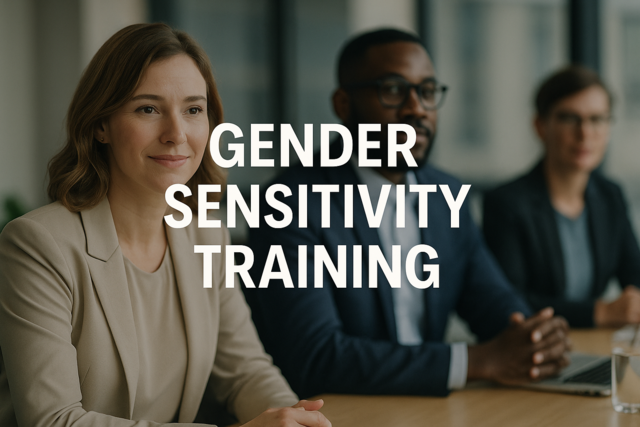There are some things in procurement management that extend outside of the procurement team. It is not necessarily due to the significance or size of something related to procurement, but rather the effect it has throughout the supply chain. The effect stretches to the business the procurement is for, their employees, their customers, the community and industry they serve, and anything else associated to those things.
This potentially massive framework is referred to as social responsibility and it plays a fairly significant role in procurement management. This article will discuss what is involved in social responsibility, how to properly manage the effects it can produce, what those effects are, and its different aspects.
As mentioned, social responsibility is a viewed as a framework that is made up of different components that are tied to procurement management in some way. The major components tend to include things like policies, practices, and actions taken by members of the procurement team. It can also include the behavior exhibited by the procurement team in the course of their duties. For many procurement professionals, social responsibility is about being aware of your actions and the effects they can have throughout the supply chain.
Social responsibility is a theory that is tied to ethics, with many of the same concepts being applied to encourage morally correct behavior. There is nothing in the theory that states a single person is completely responsible for all of the effects their actions take, thus you can't be blamed for things that may be outside of your control. The sheer number of factors present in society that can shape the effects of one action any which way makes it difficult to pinpoint a single person or action as being at fault without a clear direct link between it and the outcome. However, that does not mean that the basis of social responsibility--that you should act with accountability of your actions and their effects--should be disregarded.
Principles Of Social Responsibility In Procurement
To properly take into account the power that social responsibility has, businesses and procurement teams need to look at the major components associated with it. Looking at how a potential decision can affect each of these principles or the outcome of a decision can interact with them can influence what it is that you ultimately choose to do. Procurement teams who want to be socially responsible need to make sure that their actions positively support the principles of the framework, which include:
-
Community--The community that you operate in is going to be both directly and indirectly affected by your actions. If there's going to be an impact, then it's understandable that you would rather it be one that adds some kind of value to the community than anything else. Looking for resources within the community instead of at some major supplier hundreds of miles away, especially if the local resources provide the exact same thing as the major supplier. It's a mutually beneficial situation that can double as a means of showing support for the community. Most staff members of a business, procurement-related or otherwise, are going to be residents of the local community that the business operates in, so it makes sense to do what you can to help something that you are already a part of. They're the ones that are going to be able to recognize the effects and will likely be able to trace them back to your actions. It's also likely that you can be affected by your procurement decisions in a round-about way through social responsibility and community.
-
Ethics-- Social responsibility is an ethical theory, so of course one of its principles is going to be involve ethics. Adhere to the ethics of society, of the company you work for, the procurement industry, your team, and your own personal code of conduct if you really want to make sure that you are being socially responsible. It's a bit difficult to have a positive effect throughout the framework of social responsibility and the supply chain if you are not acting and behaving ethically. There's not much logic with the idea of unethical behavior resulting in a positive outcome--although there have been rare occurrences where such a situation has happened. Good encourages good, bad encourages bad; why do the opposite of what you're aiming for if that's not your intention?
-
Environment--In recent years, the need for all facets of the business world to be environmentally-conscious in their actions has increased. The use of eco-friendly products and business practices has been shown to help reduce operating costs and is viewed as a good thing by the public. It's something that is becoming much more practical, but a feasible option for many businesses and procurement teams regardless of their reason to do so. If you want to make sure that your actions are going to have a positive impact, you have to take into account the impact you're having on the environment. Environmental responsibility makes sense in the long term, and procurement teams should keep that in mind when they make decisions. For example, choosing a supplier with eco-friendly practices and products.
-
Safety and Welfare--A misunderstanding that many have with social responsibility is that they need to think of the effects that their actions have on things that are removed from them by several degrees of separation. While this is a part of social responsibility, things that are much closer to you can also be affected. The safety and welfare of yourself, your employees and peers, and every person in the supply chain should be a priority. There are safety protocols created for every industry by the Occupational Safety and Health Association (OSHA) that you are expected to adhere to in the course of your work. Violations of those rules can jeopardize the safety of everyone involved--the procurement team, the suppliers, company staff, consumers, etc.--and they need to be taken seriously when they occur. Adherence to safety and welfare standards isn't just a factor of social responsibility, but the basic responsibility you have as a human being to not do undue harm towards others. Failure to do so because of carelessness or ineptitude is just plain wrong and should not happen.
-
Diversity--Diversity in social responsibility isn't just about the diversity of staff and demographics--although non-discriminatory practices are encouraged as a part of social responsibility. In this case, it's about the diversity of your business practices and the resources you use in procurement management. Too many businesses monopolize a single supplier or stick to the same-old practices in their business operations. It's repetitive, and it only encourages stagnation instead of growth. If you're not doing anything different, then nothing is going to change; as the rest of the world and the economy is going to progress with or without your participation, diversifying your actions is both a wise choice and one that is tied to the business' survival. Change things up when appropriate, feel free to try something new, and work with someone outside of your own circle. Note that that does not mean use a different source for every single thing you do, as that can just complicate things and cause more problems than it fixes; it's the opposite of what you want to accomplish through social responsibility.
-
Financial Responsibility--Paying attention to financial responsibility in the social responsibility framework isn't just a good thing to do, it's also smart. Ethical financial practices and choices tend to have beneficial, long-term, and consistent economic effects for everyone involved.6 Too many people in the professional world want a positive outcome for the sake of their bottom line and they want it to happen fast. Their impatience can be counterproductive, as most attempts to speed things up tend to be unethical and frequently harm those throughout the social responsibility framework. Even when there's good intentions, poor financial decisions--either from mistakes, a lack of knowledge, or just because it was a bad idea in the first place--can have negative outcomes via social responsibility. As a result, financial responsibility requires a little more work and education to get the positive and desired effects that benefit everyone in the supply chain.
-
Human Rights--The principle of human rights is occasionally grouped with the principle of safety and welfare. After all, it is a right for people to be able to work without having their safety and security jeopardized by someone else's poor or unethical decision(s). Supporting the human rights of everyone in the supply chain means treating everyone with basic dignity. This means being respectful towards others, not abusing their rights, and simply treating them the way they deserve to be treated. The biggest way that most procurement teams do this is by avoiding suppliers who have practices that violate basic human rights. Products made in sweatshops or through other illicit activities where employees are abused should be avoided. This may mean doing some extra research into the background of a supplier or resource the procurement team is thinking of working with to make sure that they are not committing any human rights violations in their business practices. If it turns out that a supplier you work with is violating human rights, then whatever procedure(s) you have for ending supplier relationships should be started immediately. Exercise caution in cases where there is a legally binding contract between the business/procurement team and the supplier, as there may be additional issues that can occur if the relationship isn't ended properly.
-
Legalities--It is likely that your actions in procurement will have some kind of legality tied to them. There are laws about transporting products and goods, how they can be sold, who is allowed to have access to them, how they need to be handled, etc. Being socially responsible means being aware of the laws attached to your actions and acting in line with the laws relevant to your actions. While the idea of a "victimless" crime means that no one involved is legally harmed, it does not mean that they lack any kind of consequences. Just because no one close to the situation is harmed by an unethical or bad decision doesn't meant that the potential of harm for someone who is further removed from it is completely removed. You can't always guarantee that no one will get hurt if you do something illegal--and that includes yourself. There are punishments in society for those who break the law, so any illegal actions you take can result in consequences that can only impact you instead of others.
Potential Effects of Social Responsibility
Most of the potential effects of social responsibility can be divided into good or bad, although there are some outcomes that fall into a neutral in-between grey area. It's expected that if you put in the effort to generate a specific effect, you will get that effect. If you follow safety laws and protocols, have no tolerance for violations, and treat your staff and peers with dignity and respect--hitting at least two principles--you're likely going to get a positive effect through social responsibility. If you ignore safety standards and treat people like garbage, you're likely to get a bad effect and a lot of problems because of it.
How Can You Control These Effects?
While you can't control every factor involved in social responsibility, you can take certain actions to help reduce negative outcomes. Many businesses turn to actions that are predominately positive, like philanthropy and community development. They come up with strategies that are intended to provide more control over the situation when possible. Sometimes having a safety-net of sorts in place or a series of checks-and-balances to prevent poor social responsibility can be implemented. In the event that things go wrong--i.e. the backfire effect--there can be procedures in place for the team to address those situations, especially if the outcome is directly traced back to a procurement decision.
























